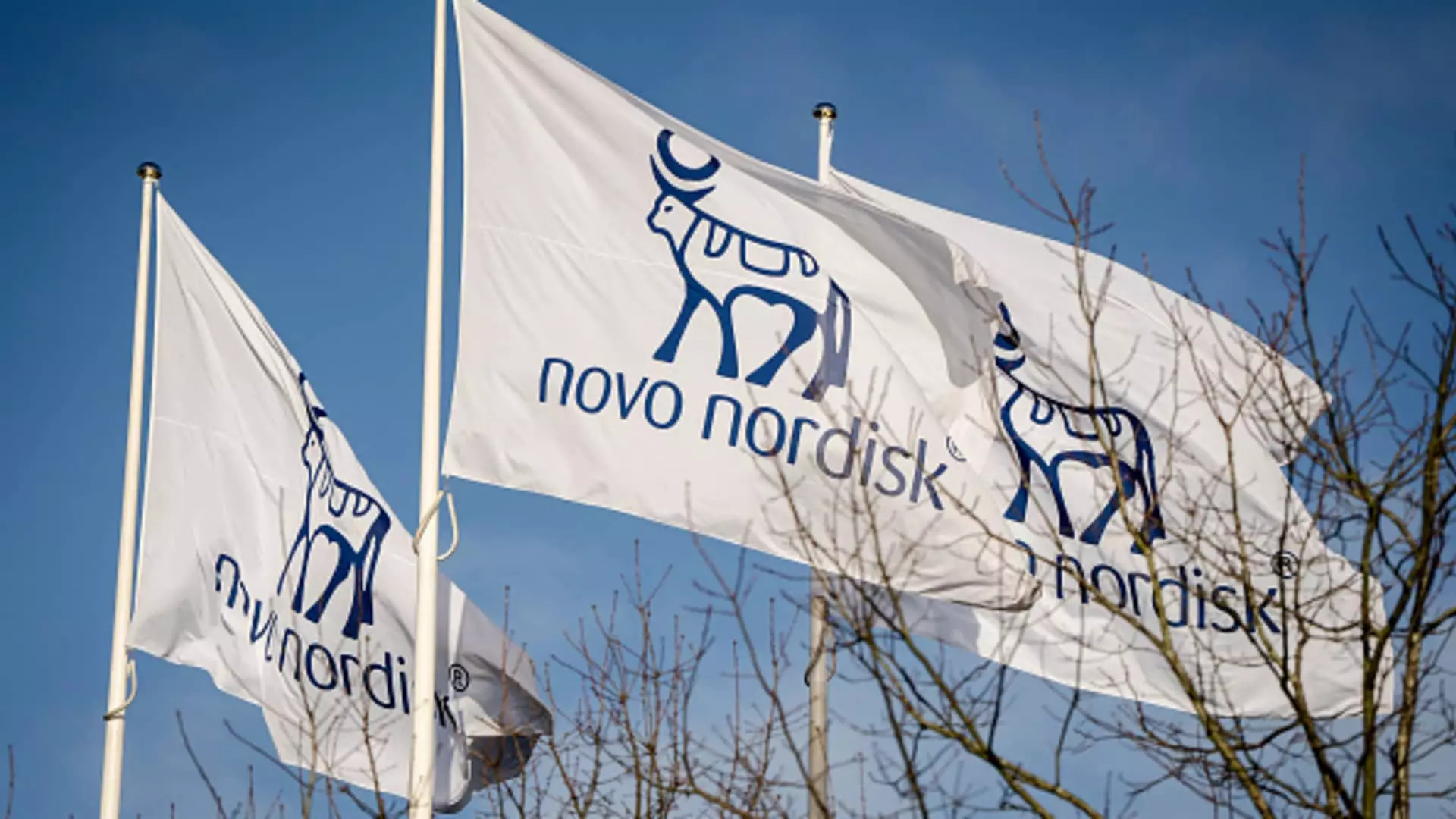In a landmark decision that will undoubtedly reverberate across the pharmaceutical landscape, Novo Nordisk has achieved a significant legal victory against compounding pharmacies attempting to produce cheaper, unapproved versions of its high-demand drugs, Wegovy and Ozempic. This ruling, facilitated by a federal judge in Texas, marks a pivotal moment in the ongoing struggle between pharmaceutical giants and smaller entities seeking to fill gaps in the market. The implications of this ruling are not merely legal but extend to issues of patient safety, market accessibility, and healthcare equity, thereby throwing into sharp relief the broader discourse on pharmaceutical regulation and corporate ethics.
The Corporate Defense of Patient Safety
At the core of Novo Nordisk’s legal argument is the claim that the integrity and safety of semaglutide-based medications are paramount. The company’s corporate vice president, Steve Benz, emphasized that patients’ welfare is a driving concern behind their widespread legal actions. However, while this rhetoric ostensibly promotes patient safety, one cannot ignore the financial motives underpinning such a robust legal defense. With the demand for Wegovy and Ozempic soaring, the stakes are high for Novo Nordisk. The battle against compounding pharmacies is as much about securing profits as it is about safeguarding health.
Critics argue that while large pharmaceutical companies like Novo Nordisk may champion safety, their restrictions on compounding pharmacies limit patients’ access to potentially life-saving medications that could be offered at a fraction of the cost. Those who lack insurance or who face prohibitive out-of-pocket expenses are left with few options. The legal victory raises questions about the ethical dimensions of monopolizing market access under the guise of consumer protection. In this sense, the ruling reflects a painful reality where corporate interests may overshadow genuine healthcare solutions for vulnerable patient populations.
The Role of the FDA in Drug Regulation
The federal government’s role in this drama cannot be understated. The FDA’s resolute stance on regulating compounded drugs has been both praised and criticized. By determining the shortage of semaglutide to be over, the FDA has paved the way for more aggressive action against pharmacies producing these unapproved versions. Yet, this regulatory framework raises debates surrounding transparency and fairness. The FDA is often viewed as a gatekeeper that prioritizes the interests of major pharmaceutical companies, potentially at the expense of safe, affordable alternatives that compounded pharmacies could provide.
Moreover, the fragmented regulatory environment—where 503A and 503B pharmacies are governed by different sets of rules—further complicates the issue. A more streamlined and patient-centered approach to regulation could empower local pharmacies and, in turn, improve healthcare outcomes for patients who have been historically marginalised in pharmaceutical discussions.
The Economic Divide in Healthcare Accessibility
Novo Nordisk’s legal victory also outlines a harsh economic divide in healthcare accessibility. As insurance premiums rise and prescription drugs become costlier, low-income patients are particularly vulnerable. The compounding pharmacies, often offering more affordable alternatives, represented a lifeline for countless individuals who could not afford branded medications. By restricting these alternatives, the ruling exacerbates existing inequalities, presenting a clear case for healthcare reform that prioritises equitable access to necessary medications.
The contradiction presents an unsettling reality: a legal environment that ostensibly protects patients simultaneously constrains their options. This dynamic fosters a health crisis where the most disadvantaged are relegated to negotiate their health outcomes in a landscape dominated by corporate interests; they remain stuck between prohibitive costs and a lack of alternatives.
Aspiring to a Just and Fair Healthcare System
While the pharmaceutical industry is rife with complexities and challenges, the recent legal outcomes of Novo Nordisk signal an urgent need to redefine the conversation around drug accessibility and patient rights. It is crucial for stakeholders, including policymakers and social advocates, to engage with this evolving issue. A truly equitable healthcare system must consider both the interests of drug manufacturers and the fundamental right of individuals to access affordable medications.
As legal battles continue to evolve, the chorus for systemic reform grows louder. If society is to embrace a more inclusive healthcare future, vigilant scrutiny of the motives behind these corporate victories will be vital. Balancing patient safety, access, and ethical practices ought to be at the forefront of the ongoing debate surrounding medication availability in the U.S.

